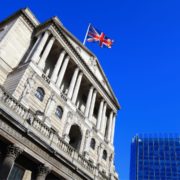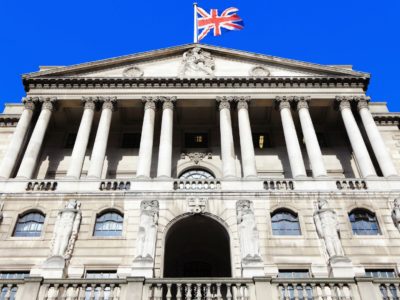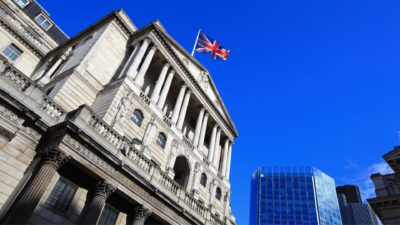Unruly markets have been calmed by expectations that central banks, particularly the Fed, will pause or go slow on interest rate hikes to stop anything else getting broken, in the wake of the banking turmoil.
Wall Street stocks lifted sharply and indices across Asia also lifted, with banks badly hit by the fallout from SVB making up chunks of losses.
Signs that headline inflation in the US is falling helped even though core inflation remains sticky.
But many banks are still trading significantly below the level they were at the start of the month, indicating that nervousness is still hanging around, reflected in the downgrade of the sector.
Moody’s cut its outlook to ‘negative’ from stable, warning of a rapid deterioration in the operating environment. So, there are still clearly risks ahead,
A game of whack a mole seems to be emerging, and although there is calm for now fear remains that problems risk popping up elsewhere in the world, not least in Japan.
Banks rallied during the session, but regional banks also remain sharply down on the week.
The worry is that smaller banks sitting on large unrealised losses in their bond portfolios might not have sufficient capital buffers if there is a fast withdrawal of deposits.
Oil prices have crept up a little after OPEC upped its forecasts for demand in China, but there worries about global growth are lingering and Brent Crude is hovering under $79 a barrel, close to three-month lows.
It’s all about the Budget in the UK and Jeremy Hunt, the Chancellor is focusing on how to prod the stalling economy into life, without making tax cut and spend promises which could set off a fresh debt furore.
With a keen eye on trying to maintain financial stability particularly the close shave this week given SVB’s collapse, he looks set to focus on highly targeted policies, rather than tax cuts to propel growth.
He has more wiggle room as public sector borrowing, still high by historical standards is set to undershoot forecasts made by the Office of Budget Responsibility.
Labour shortages mean high inflation is stubborn and he’ll be trying to coax people back to work with a combination of sweets and a naughty step approach, with a widening of sanctions expected for those who don’t look for work.
He is set to pull a big cuddly rabbit out of the hat for parents struggling with childcare costs, with speculation high that parents of under twos in England could be offered 30 free hours of childcare a week.
This could be a game changer for mothers, who are more likely to leave the workforce or dramatically cut hours because the cost of childcare is so painful, given prices are among the highest in the world.
But the stuffing could come out of the rabbit and the policy could unravel if nurseries struggling to attract staff are unable to provide the place with the funding being offered.
So, the detail of the policy, if its announced, will be crucial.
The Chancellor is understood to be looking at increasing the lifetime pension allowance to try to encourage more people to work for longer and allowing workers to put more money into their pension pot before being taxed.
As widely expected, the Energy Price Guarantee is going to stay at £2500, instead of rising to £3,000 in April.
This will be a huge relief for the millions of people who are already struggling to pay their bills and were facing the threat of more price rises.
The freezing of the guarantee was always going to be more likely when the falling wholesale cost of energy meant it was set to cost £5 billion less than forecast.
But the loss of the monthly discount from April will still be felt and already almost half of people are finding it difficult to pay their energy bills.
However, if energy cost continue to fall as they have been, people should start feeling the benefit by around July.
Hunt is also expected to conjure up tax incentives for businesses who invest in Britain, to offset some of the effects of the corporation tax increase which is going up from 19% to 25%.
The defence sector could also get a boost as the Treasury has been under pressure for months to increase military budgets.
He’s expected to announce an extra £5 billion over two years and there will be a keen eye trained on the trajectory after that.























Comments